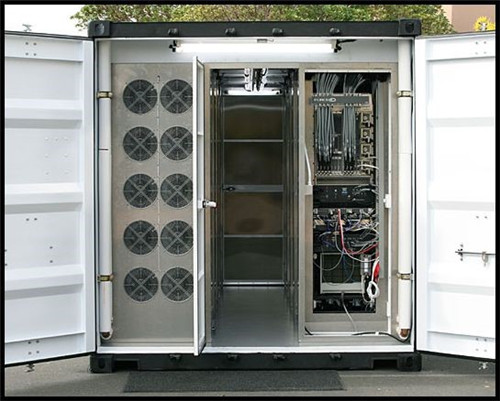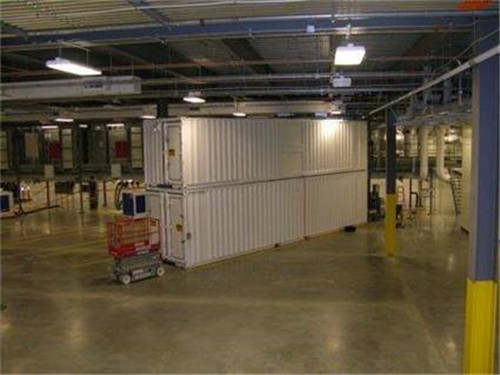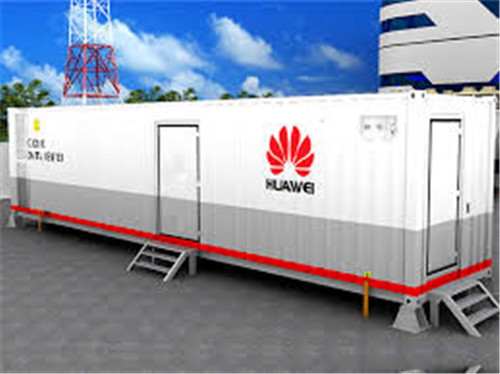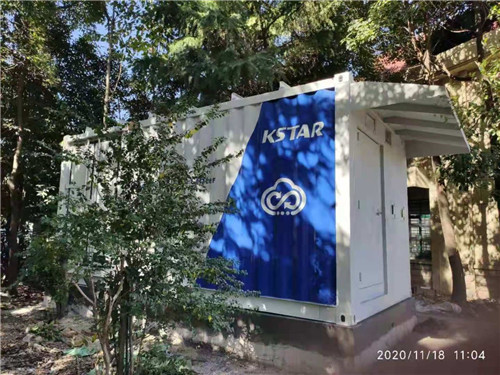

A Short History of Container Modular Data Center
What's a container data center
A container data center or portable modular data center (PMDC) is primarily defined as a modular data center incorporated into a standard shipping container or similar type of container. The containers are then fabricated with all the necessary components used in a data center, including cooling, power, and racks. This essay will cover the history of container modular data centers.
The first commercial container data center in 2006
Datacenter containers have been used for years by the U.S. military. In 2006, SUN released the first commercial container data center product Sun's Project Blackbox and it is considered to "extend the boundaries of the data center universe, and gives additional options to managers of fast-growing enterprises.”

PROJECT BLACKBOX
20' x 8' shipping container
8 racks (7 racks with a total of 280 rack units available for servers)
In this first container data center solution, you can find the common features of this type of modular data center shared:portable,fully enclosed, rapid deployment,money-saving,easy to expand.
2009: a landmark year
However, it was not until some manufacturers began to launch container data center products after 2-3 years that it caused much widely discussion. In 2008, HP launched POD 40c 40-ft modular data center in a container, which had been claimed by HP that it could offer the computing equivalent of 4,000 square feet of traditional data center space. In 2009, Microsoft, IBM, and Google unveiled its first container data centers successively. The concept of container data centers began to spread widely in the industry. Some manufactures found that the container data center has outstanding cooling efficiency due to fully enclosed. It could also provide lower PUE values, resulting in greater energy-saving, making it fits for the high-density server, especially the blade server.

Microsoft Container Data Center Project
2011-2020: one of the fastest-growing products in its market segment
Then in 2011,a leading data center provider company I/O, followed the trend by building a large data center of 800,000 square meters based on a large number of containers. Thanks to the flexible, modular design of these container data centers, I/O did not need to complete the construction of this data center at one time but expand the capacity according to the customer's order, which proved the advantages of the data center container.
These years, we have talked a lot about container-based data centers. Leading data center solutions providers such as Cisco,Eaton, Huawei, Kstar have all introduced their data center in containers to users. According to HIS, the penetration of containerized data centers is up to 2.3% in 2020. North America leads adoption because large hyper-scale companies are headquartered there and they were the first users and promoters of container data centers.

Container data center dimensions
According to mainstream products in the market, standard footprints of these containers for use as data center modules are 20 ft x 8 ft (6.10 m x 2.44 m) and 40 ft x 8 ft (12.2 m x 2.44 m). Today They can be regarded as a turnkey solution for data center infrastructure and have been widely used for remote locations, harsh environments, and commercial businesses application in several industries including telecommunications, education, business, health, and energy.

Kstar 20ft container data center
